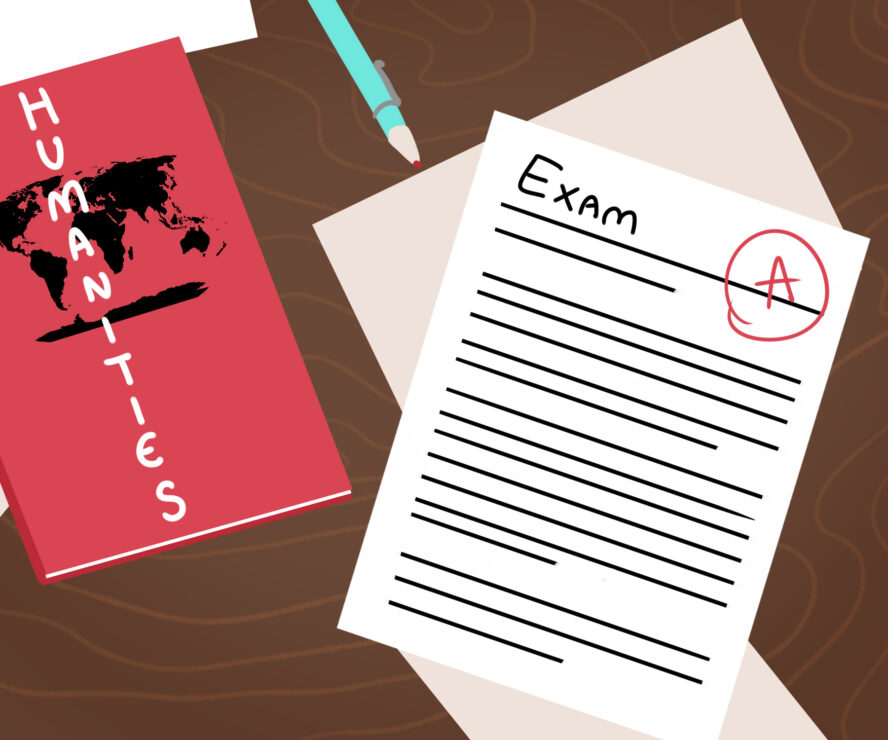Four tips on studying and writing for a humanities exam

University humanities courses often earn bad reputations for being impossible to study for. As a graduated English major, I get asked how people can study for humanities courses when the content and marking can seem subjective. Students ask how they can ace an exam when there’s no perfect, 100 per cent correct answer.
If you’re struggling to excel in your humanities exams, here are some of my top studying and exam-time tips that will take your answers to the next level.
Get intimate with the text
If you’re taking any course with a classic novel, history text, important speech, manifesto, or theory — make sure you know that primary text. This sounds really simple (just read the syllabus!), but what I mean is have an opinion on the text, have an understanding of what it means in the broader context of the course. It’s like the ‘yes, and’ of humanities courses. Don’t just memorize the author or time period, know the text’s greater significance.
This tip is especially important for exams with written essay components because you’re most likely going to have to argue a point. So what is your point? A good way to start studying for this kind of exam is laying out the themes of the text and then developing your arguments on what those themes represent in course, or in the world.
Pro tip: If you’re going to memorize anything word for word for the exam, memorize an important quote from a key text. It can really impress professors if you slip a direct quote in to support an argument in an exam essay.
Time yourself
One of the common problems that comes up in the humanities exams is that people run out of time. If you have several long answer questions and a couple essay questions to complete in under two hours, you’re going to need to practice writing, and writing fast.
This means that for writing online exams, you’re going to need to know how fast you can type. Use your phone timer and time yourself typing up a paragraph on a random topic in your course. If you know how fast you write, you can plan to allot yourself more or less time on essays or long answer questions than on multiple choice or short answer sections.
Give yourself time to plan and edit
Give yourself about 10 minutes to fully read the exam when you start. This means you initially read through the questions, especially the essay questions if you have them, and make some primary notes when you first get that exam document. This allows you to think about the essay or long-form questions as you are taking the other sections of the exam, saving you from the panicky feeling of not having enough time to think before you write.
Equally as important is leaving 10 minutes at the end to read over your whole exam. Don’t just skim it either; fully engage with what you’ve written. If you can do it quietly, read it aloud. This tip lets you catch not only grammar and spelling mistakes, but it can save you from content errors as well. Maybe you got the name of a historical figure wrong, or mixed up two different theories. If you leave time at the end to edit, it can save you from losing marks on simple mistakes.
Planning and editing also give you the opportunity to present a polished exam. Never underestimate how few students go back to edit — your exam can be a standout. Help the professors help you.
There are many right answers
The UVic Faculty of Humanities’s Vision and Mission statement says: “The humanities equip us to make critical and difficult choices, to recognize the difference between what is right and what is easy, and to take responsibility for our choices.”
If you truly don’t know the answer to an exam question, or get caught up wondering how your work will be graded, remember that the humanities are not absolute. Humanities is the study of culture, language, theory, literature, and technologies — pieces of the world and history that exist as ever-evolving, ever-elusive questions and choices.
As a professor once told me: There are wrong answers, but there are certainly many more right answers.







